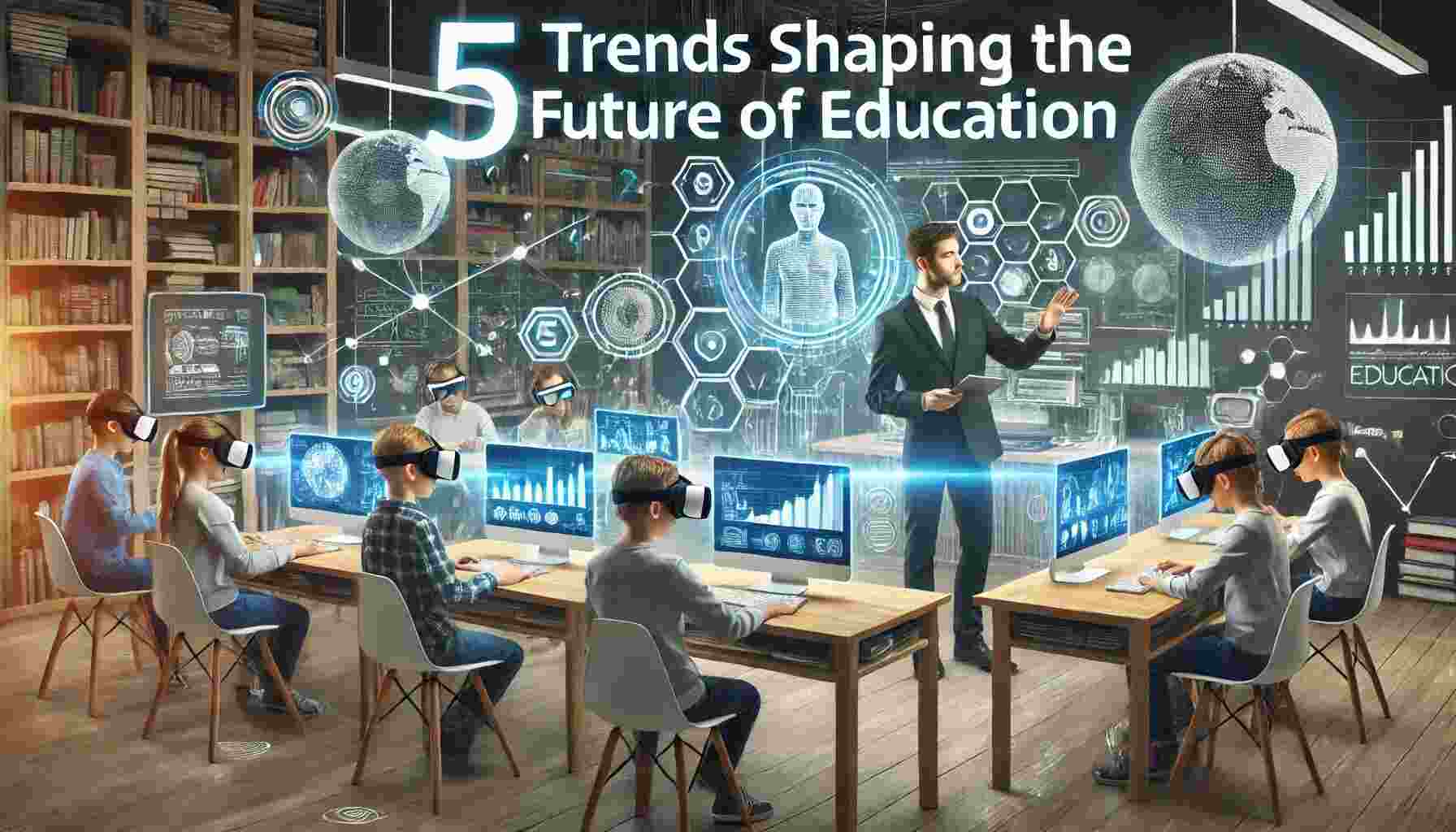The landscape of education is evolving rapidly, driven by technological advancements and changing learning needs. Here are five key trends shaping its future:
1. AI-Driven Personalized Learning
🚀 Artificial Intelligence (AI) is revolutionizing education by making learning more personalized and efficient. Adaptive learning platforms analyze student performance and customize lessons to match individual strengths and weaknesses. AI-powered tutors and automated grading systems provide instant feedback, freeing up educators to focus on deeper engagement. This shift ensures that every learner progresses at their own pace with targeted support.
2. Hybrid Learning and Digital Accessibility
🚀 The rise of hybrid learning—blending in-person and online education—has made learning more flexible and inclusive. Students can access high-quality educational content from anywhere, breaking traditional classroom barriers. Online platforms, virtual classrooms, and digital collaboration tools are reshaping the way knowledge is delivered, making education more accessible for all.
3. Gamification and Immersive Experiences
🚀 Gamification and immersive technologies like Virtual Reality (VR) and Augmented Reality (AR) are transforming education into an interactive and engaging experience. Students can conduct virtual science experiments, explore historical landmarks in 3D, or solve real-world problems through simulation-based learning. By integrating game-like elements such as rewards and challenges, educators are making learning more effective and enjoyable.
4. Shift Toward Skill-Based and Lifelong Learning
🚀 The demand for job-ready skills is shifting education from traditional degrees to competency-based learning. Short-term certifications, boot camps, and micro-credentials are becoming increasingly valuable. As industries evolve, lifelong learning is becoming essential, encouraging professionals to continuously upskill and stay relevant in a fast-changing job market.
5. Focus on Social-Emotional Learning (SEL) and Mental Well-Being
🚀 Beyond academics, education is placing greater emphasis on students’ emotional intelligence and mental health. Social-Emotional Learning (SEL) programs help students develop resilience, communication skills, and empathy. Schools and universities are integrating mental health resources, fostering supportive environments that prioritize holistic student well-being.
Conclusion
The future of education is dynamic, technology-driven, and student-centered. As learning becomes more personalized, accessible, and skill-focused, these trends will continue to shape the way we teach and learn.
